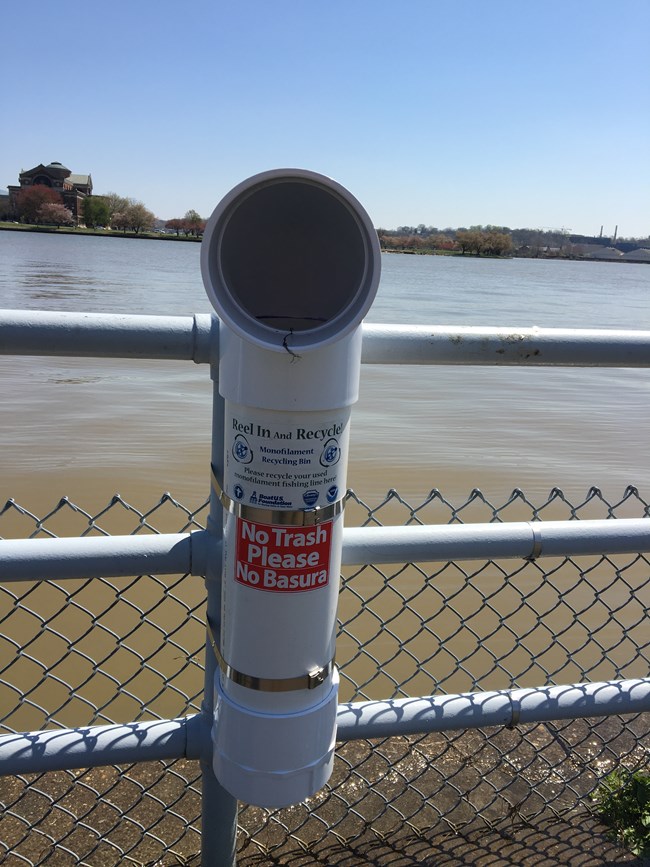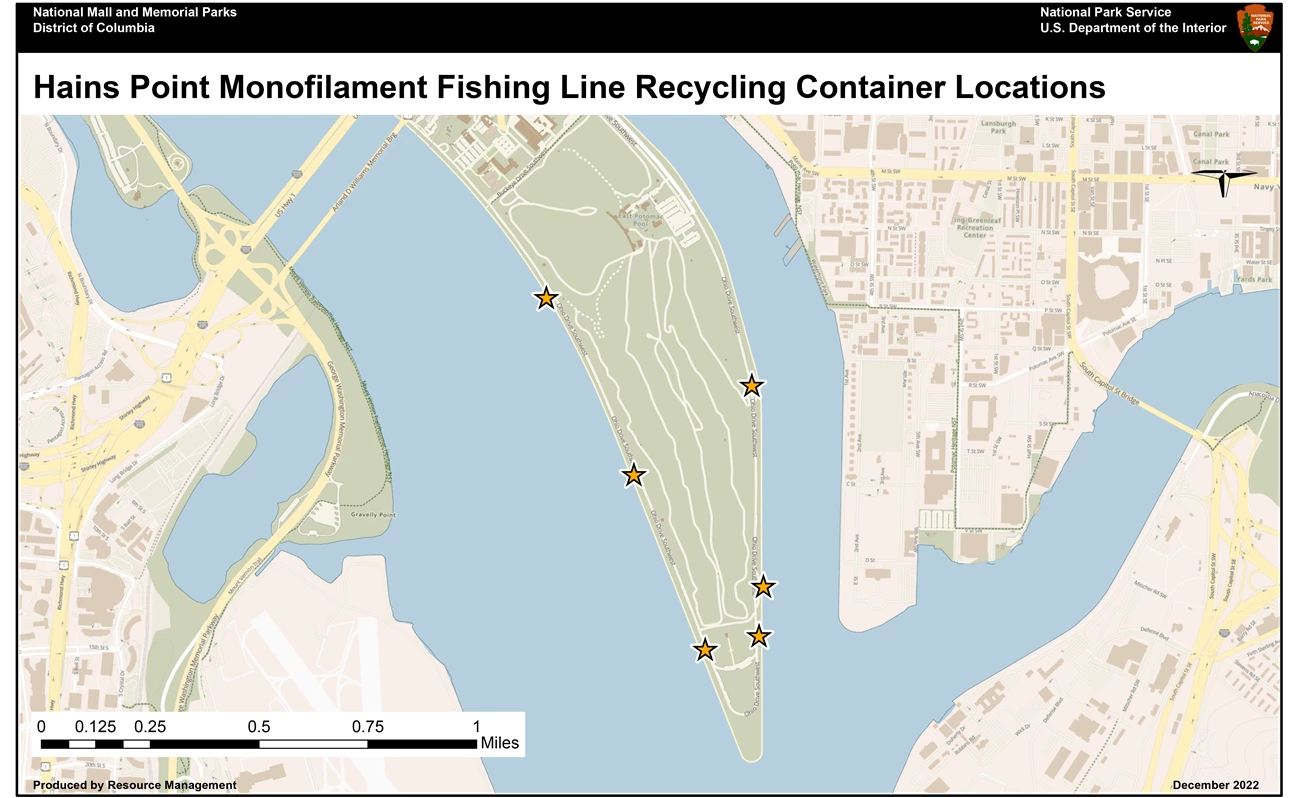|
There are several public fishing sites within National Mall and Memorial Parks. Constitution Gardens Lake is located in downtown Washington, D.C. and has been designated for catch and release fishing only. Within the 6.75 acre lake, there are populations of large mouth bass, bluegill, and black crappie. Fish Consumption Advisories in National Park WatersThe Environmental Protection Agency, states, territories, and tribes provide advice on fish and shellfish caught in the waters in their jurisdiction to help people make informed decisions about eating fish. Advisories are recommendations to limit your consumption of, or avoid eating entirely, certain species of fish or shellfish from specific bodies of water due to chemical or biological contamination. 
Fishing Line Recycling ContainersNational Mall and Memorial Parks has installed 6 monofilament (fishing line) recycling containers in East Potomac Park, just in time for Earth Day. The containers are found along the Ohio Drive/Hains Point loop where many anglers enjoy fishing. The containers are designed to keep monofilament out of the environment where it can entangle fish and wildlife. The line is then sent off to to be recycled. Thank you for helping keep our parks and waterways clean. 
|
Last updated: January 23, 2023
